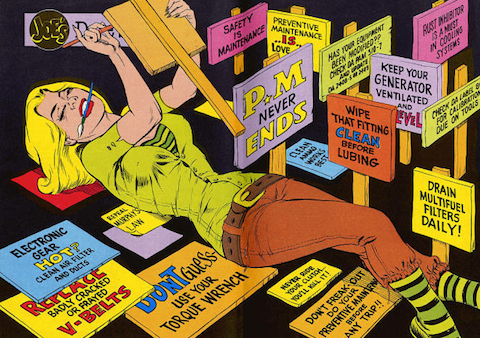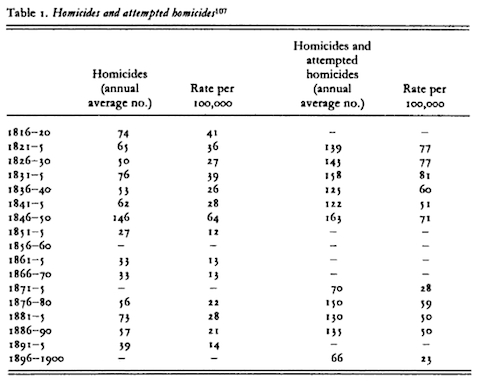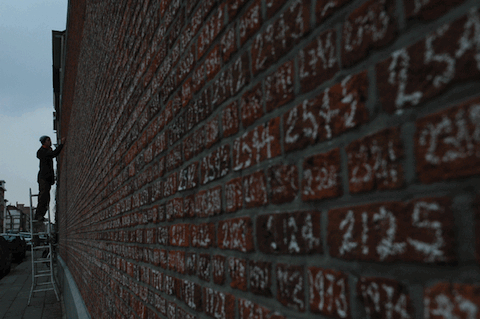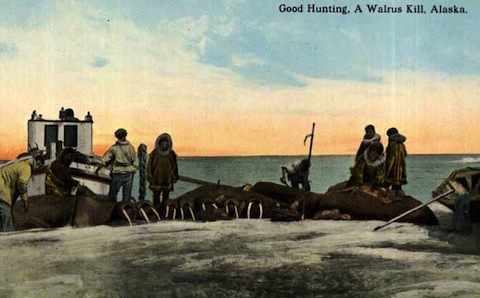Taking a full day to get cracking on the book’s second draft. I can only hope the end product is as lyrical as the Eritrean revolutionary poetry above.
Wading Back In
June 14th, 2012
The Master of “What If?”
June 13th, 2012

A year ago I wrote about the great Cuban boxer Teófilo Stevenson, who passed away on Monday. I, like so many others, have always been awestruck by Stevenson’s willingness to forego a pro career, one that would have doubtless earned him millions of dollars. He instead chose to live a simple life in Cuba, where his house frequently lacked hot water, and he couldn’t muster the funds to fill his small swimming pool.
I can’t say I understand Stevenson’s choice, but maybe that’s just because I’m angry the world never got to whether he really could have beaten Muhammad Ali. But how can you not respect a man who prized his personal values over material wealth? We all suspect that in such acceptance lies true happiness, though precious few of us are willing to find out for ourselves.
Check out the original Microkhan post on Stevenson’s choice here. And watch him ply his punishing trade at the Moscow Olympics here.
Comments Off on The Master of “What If?”Tags:boxing·Cuba·philosophy·sports·Teofilo Stevenson
Voyage Into Inner Space
June 12th, 2012

The above comes from the military manual given to all new arrivals at Johnston Atoll, the Pacific island where we dumped a whole bunch of toxic material back in the day. I can’t help but love the accidental Zen of this motto.
More on the Johnston Atoll lifestyle here.
Tighten Up Tighter
June 11th, 2012

The Army knew better than to stick a talent like Will Eisner in a foxhole. The artist was allowed to serve his country from behind a drawing board, where he was the chief creative force behind a series of comic instructional manuals. The best-known of these was Preventive Maintenance Monthly, the highlight of which was always Eisner’s single-panel “Joe’s Dope Sheet” feature. The star of “Joe’s Dope Sheet” was the unnamed woman above, who somehow managed to make gasket-tightening seem quasi-pornographic. I’m especially fond of this installment, in which the woman castigates a pint-sized soldier for installing the wrong cable control unit on his bulldozer. Though Eisner was also capable of much more overtly titillating fare, too.
Laugh at the sophomoric use of pneumatic sexuality if you must. But think of how many lives were saved by the messages contained within Eisner’s cheesecake work. If you’re grandfather didn’t die in a jeep accident in Korea, he might well have the female star of “Joe’s Dope Sheet” to thank.
Comments Off on Tighten Up TighterTags:comics·Joe's Dope Sheet·military·Preventive Maintenance Monthly·sex·Will Eisner
Non-Daily Operation
June 8th, 2012

Tremendous apologies for failing to living up to this project’s motto this week. Much craziness with sifting through book edits and trying to rent out the former global headquarters. Was planning something special for today, but need to make an emergency trip to the heart of Nieuw Amsterdam to see a man about some papers. Thanks, as always, for your forbearance, and see you back here next week with posts about college athletics, feral pigs, and the Venezuelan steel mafia.
To Scatter an Area
June 5th, 2012
I am no great authority on Igbo music, but I think it’s safe to say that Area Scatter was one of the genre’s very few transvestite thumb pianists. The gender-bending was integral to his rock-star mythology, as detailed in Beats of the Heart:
His home was filled with bones and skulls and paintings of the power of good and evil. A muscular, humorous man, he explained how, after living through the civil war, he had gone into the wilderness for seven months and seven days and had reappeared transformed into a woman. The day we visited him he headed off, dressed in white smock, polka-dot skirt and a shamanist bone necklace, to the residence of his Royal Highness Eonunnoke to play for the local king and queen.
The clip above seems to be the only surviving video of Area Scatter, but John Beadle’s post has links to several songs. It also has this explanation of the musician’s unusual moniker, as provided by a Nigerian reader:
Area Scatter, the name, denotes eccentricity. As I discussed in one of the Nigerian forums, in those days and even now, cross dressing was/is unimaginable in Igbo land. Not only did this man cross dress, he did it boldly and proudly. To scatter an area means to turn an area upside down. He must have considered himself a revolutionary and the best way to sum that up was by choosing Area Scatter for a name.
Consider “to scatter an area” added to the list of idioms I shall henceforth be employing on Microkhan. Only those fortunate enough to have read this post will have the vaguest notion of what I’m talking abut.
My Father, the Sniper
June 4th, 2012

There is now a whole sub-genre of literature that deals exclusively with the lives of snipers. The public fascination with these lethal technicians is easy to understand: We see them almost as warrior monks, able to hush their thoughts so as to withstand the sheer boredom of their task. And there is something almost Zen about the way in which the consider their weapons as extensions of their physical bodies, and the rituals they carry out to reinforce that cyborgian mindset.
These themes are apparent in the work of the young Bosnian artist Adela Jusic, whose father (above) was killed while sniping in 1992. Jusic later discovered the diaries he kept throughout the Bosnian War, and used them to create her most well-known piece, “The Sniper.” She explains here the aura that surrounded her father’s work, and how it created a strange bond between father and daughter:
My visual, but also every other possible kind of memory of my father, are explicitly related to the war, the uniform, dirty boots, weapons, courage. He is primarily not father, but my father-soldier, who keeps coming and going, and every time he leaves, I am afraid he won’t be back. Those two identities of his were for me even more inseparable considering that I had been experiencing the happiest moments of our father-daughter relationship during those very moments of me cleaning his weapons. During these moments the father was proud of his daughter, and the daughter was aware of it, and this meant to her much more than any kind of hug or word.
Then he would leave to battle again, and he’d come back, and our family ritual would be repeated. By discussing this work with my close fellows who survived the war in Bosnia I realized that such a relationship with one’s father was not a distinct case, although I had long entertained such thoughts. On the contrary, this was a relationship quite common in the families of the time, dominated by the wartime family ritual which linked the father and the child in a completely unusual manner, in a way only war can link people and within any other relationship in the society. I’ve also noticed that the rituals of cleaning the rifle of one’s father-, and sometimes even one’s mother-soldier, are marked in the memories of those then-children, nowadays already mature people, as moments of intimacy and family idyll.
This is a theme that will soon come to light in American art, as the children of the last decade’s lost soldiers become old enough to shape and share their stories. There will be veneration, and there will be pain. And much of it will be anchored in scenes like the one described by Jusic, in which a child elbows into an adult ritual that gives them some small glimpse of the world their parent walked in.
→ 2 CommentsTags:Adela Jusic·art·Bosnia·Bosnian War·firearms·snipers·Yugoslavia
Trillion with a T?
June 1st, 2012
It’s always a bit sad to see one of your childhood idols reduced to hucksterism. Yet such appears to be the case with the legendary Eric Dickerson, who once performed wondrous feats for my beloved Indianapolis Colts. Now years removed from the limelight, Dickerson today earns a living by peddling belts that purport to unclump blood cells (or something like that). The company’s real sales target is not the end consumer, necessarily, but rather folks who yearn to become “authorized dealers”—a business strategy straight out of Amway 101. Yet those who would contemplate joining the MagicBelt family would be well-advised to check out the clip above, in which Dickerson promises a piece of an thirteen-figure pie. Beware the casually hyperbolic.
Comments Off on Trillion with a T?Tags:Eric Dickerson·football·MagicBelt·pseudoscience
Boiling a Frog in Reverse
May 31st, 2012

I have previously written about Mongolia’s struggles with endemic alcoholism, which the political establishment has tried to address by leading by example. But as this editorial makes clear, the problem is only getting worse, with over 55 percent of the nation’s population admitting to excessive alcohol intake. Aside from raising taxes to exorbitant levels, then, what is a concerned government to do? Here’s one intriguing idea from the editoral:
Decrease alcohol content in the alcoholic beverages year by year. The majority of alcohol beverages that are produced in Mongolia has an alcohol content of above 38% vol. If the alcohol volume is decreased by 1% year by year, Mongolians will drink alcoholic beverage of 20% by 2030. Obviously this would be better than the current situation.
The assumption here is that such a slow decrease in alcohol content will be imperceptible to consumers. If that turns to be correct, what might such an experiment reveal about the nature of alcoholism? Perhaps that some people drink out of habit as much as due to physical dependence—a line of argument expertly explored in this recent tome by Friend o’ Microkhan Charles Duhigg. Lowering alcohol content on the sly could be the Holy Grail of harm-reduction strategies.
Or it could be a disaster. What if people simply consume more drink in order to achieve the buzzes they enjoyed in years past? Or, perhaps more likely, developed a black-market for higher-proof beverages?
I’m not sure where the science stands on this question, but I do know that no one has ever conducted such an experiment on such a gargantuan scale. If nothing else, it sounds more humane than the Medieval Mongolian way of dealing with alcoholism, as outlined in the editorial’s lede:
If a person arrives drunk at a workplace, the first time impose a fine of a weapon he is carrying with him, second time impose the fine of a horse he is riding, third time cut off an extremity of the body. If a fourth time occurs, expel him out of the territory.
Do massive hangovers count as drunkenness? Because if so, I would have been rendered a one-handed exile long ago.
(Photo via Rich Wainwright)
→ 2 CommentsTags:alcoholism·books·Charles Duhigg·Mongolia·psychology·The Power of Habit
Hail to the Chief
May 30th, 2012
Late jump on the day, so must leave you with a classic from the late Chief Oliver de Coque, who guitar arsenal included this innovative number. Back tomorrow with some thoughts on Mongolia’s skyrocketing rate of alcoholism.
Comments Off on Hail to the ChiefTags:Chief Oliver de Coque·music·Nigeria
Poetry Lives!
May 29th, 2012
I spent part of the long holiday weekend catching up with Evan Osnos’s account of Macau’s casino scene, a story gorgeously stuffed with details of nouveau riche excess. The mind reels at the thought that Macau’s high rollers require stools upon which to place their handbags, or that they rock $12,000 mobile phones. But the anecdote I loved most came high up in the piece, as Osnos recalled his first visit to one of the peninsula’s most lavish destination:
A short drive from the ferry, Steve Wynn has a complex with two hotels, where the Louis Vuitton outlet is said to generate more sales per square foot than any other Louis Vuitton outlet worldwide. Walking past a tank of luminescent jellyfish, which require a specially designed curtain to sleep at night, the casino official who was showing me the place told me that Chinese clientele demand a heightened level of luxury, because “everyone is a president or a chairman.” We stopped into the complex’s newest Michelin-starred restaurant, which has an in-house poet who writes a personal verse for every V.I.P.
This was the way things worked in the old days, correct? Before poets were expected to support themselves through book sales and teaching gigs, they relied on powerful patrons who expected adulation in return. I’m sure the poet who holds this post is thankful for the steady paycheck, but I do wonder what he thinks of the multi-millionaire strangers he must shower with praise. He probably didn’t get into the poetry game because he yearned to massage the egos of fat cats.
And the never-ending cosmic ballet twixt art and commerce continues…
Comments Off on Poetry Lives!Tags:China·Evan Osnos·gambling·Macau·poetry·The New Yorker·writing
A Game in Which Everyone Loses
May 25th, 2012

As you enjoy the forthcoming three-day weekend, take a moment to think good thoughts for the beleaguered citizens of Papua New Guinea, who are weathering what could be the nation’s nastiest political crisis in years. Matters started to get out of hand three days ago, when Papua New Guinea’s Supreme Court ruled that former prime minister Sir Michael Somare (above) should be reinstated to his old job. (The Economist has a good backgrounder on the legal issues here.) Somare tried to bum rush the Government House to get himself swore back into office, but he was turned away by soldiers loyal to current prime minister Peter O’Neill.
Then O’Neill and his surrogates countered in most dramatic fashion:
An extraordinary scene unfolded at the Waigani Supreme Court yesterday when Deputy Prime Minister Belden Namah burst into a Supreme Court session presided over by Chief Justice Sir Salamo Injia and demanded he be arrested for treason and sedition.
Mr Namah was flanked by senior ministers in the O’Neill/Namah cabinet, along with members of the Police and Defence Forces…At approximately 1.45 pm Mr Namah and his entourage walked into courtroom three and shouted at the Chief Justice: “Enough is enough” and “I warned you, you are the most corrupt person in this country.”
The Chief Justice lifted his hands up to calm the situation but upon seeing police advancing towards him quickly made his way out through the judge’s entrance into his chambers. His associate Allan Dian tried to follow him and prevent police from entering but was manhandled.
In a statement Mr Namah said, “The Chief Justice is a threat to National Security. He is not an elected leader. He has on many occasions given permanent stay orders to prevent police exercising their constitutional functions. His decisions encroach into Parliament’s powers – he has usurped the powers of the Legislature, Executive and the Governor-General. His judgments have been vindictive and he has not been behaving like a Chief Justice but rather a tyrant, drunk with power.”
You can probably see where this is heading now: A fracture in PNG’s security services, followed by a state-of-emergency declaration. O’Neill and Somare are such bitter enemies that it’s difficult to see how this impasse will be resolved unless one of them is arrested, harmed, or leaves the country. All that is certain now is that Papua New Guinea will suffer more because of its political leaders’ egotism. Same old, same old.
Comments Off on A Game in Which Everyone LosesTags:law·Papua New Guinea·Peter O'Neill·politics·Sir Michael Somare
The Slip-and-Fall Queen
May 24th, 2012

If the good folks at the National Insurance Crime Bureau are to be believed, the ol’ slip-and-fall con is thriving anew these days. Yet today’s practitioners of this tried-and-true scam are rank amateurs compared to Patricia Latham, who became a wealthy woman by perfecting the art of slip-and-fall. Her dedication to her craft was as deep as it was destructive, as this 1991 Orlando Sentinel article makes clear:
Using heavy rubber bands to bind her wrists and her son as a disguised witness to falls she staged, Patricia Latham was able to defraud insurance companies of thousands of dollars.
Latham, 59, a former Palm Beach and Broward County schoolteacher, her husband, Leroy, 62, and their son, David, 30, pleaded guilty on Thursday in Palm Beach County Circuit Court to swindling insurance companies…
The family’s confessions, which have yet to be made public, outline the drastic steps the family took to conduct the insurance schemes. Those steps included having David Latham physically harm his mother to make it appear she was injured during her staged falls. The couple also used their son as a backup witness in disguise, creating false names and establishing fictitious addresses for him to help support their claims.
The trio maintained during their confessions that a 1986 injury Patricia Latham sustained at a West Palm Beach McDonald`s restaurant was “a real slip and fall, but the injury started to heal too fast.” When Latham noted the quick healing of the hand she used to draw on classroom chalkboards, she did research. Through medical books, she found similar conditions.
When visiting attorneys, doctors or making court appearances, Patricia Latham would use her new medical knowledge to create a swollen hand. She wore sweat bands on her wrist, covering them with very tight rubber bands, for three to four hours before appearing.
After she was awarded $500,000 in the McDonald`s case, the family “intentionally went out” to look for “negligently repaired conditions” at restaurants and businesses. A poorly repaired carpet at Don Carter’s All- Star Lanes Ltd. in Boca Raton gave them their next target.
Once again, the sweat bands and rubber bands were used, but this time on both arms. “They had their son severely manipulate her hand to almost break it,” as they sat in a car in the bowling alley parking lot.
In 1988, Patricia Latham sued the bowling alley, but the lawsuit was dropped after insurance investigators filmed her using her hands during a trip to Walt Disney World.
Before her August arrest, Patricia Latham had fled from a San Diego courtroom. She was in the midst of a trial for a civil suit filed against a Kentucky Fried Chicken restaurant where she had staged another fall.
Yet Latham’s intelligence seems to have been of a very specific and devious nature, for she was a mess when it came to dealing with more ordinary aspects of life. Despite earning enough illicit money to live comfortably for many years, she wound up broke. I have to assume that Latham was less interested in the money than in the thrill of beating the system. We all have a desire to feel that we are not, in fact, at the mercy of circumstance. For Latham, her way of tasting that bit of human freedom was to pretend that she had broken her hands after slipping in a puddle of KFC barbecue sauce. To each her own.
→ 2 CommentsTags:con artists·crime·Florida·Patricia Latham·slip and fall
The Corsican Glass is Half Full
May 22nd, 2012

As a tremendous fan of the French movie A Prophet—I defy you to find a flick with a better razor-attack scene—I was naturally drawn to this recent account of Corsica’s organized-crime problem. The French-run island sounds like it’s run like the Brooklyn docks circa 1952, with men of violence calling the shots at all levels. But that said, I had to pause and scratch my head upon reading this paragraph, which sort of undermines the whole article’s reason for existence:
Bozzi’s murder was the seventh of the 22 that disgraced Corsica in 2011 — a slow year compared to 2010 (40) and 2009 (44). In 2012, violence is already picking up. As of May, there have been nine killings.
First, if there have been nine killings as of May, the homicide pace hasn’t really picked up all that much. If the trend continues, Corsica’s year-end homicide rate will be just shy of 9 per 100,000 residents—high for placid Western Europe, of course, but well below that of most American cities with reputations for poor security. More important, couldn’t that homicide rate also be celebrated as progress? As the article itself notes, the number of annual killings has dropped in recent years. And as you can tell from the data above (taken from this fine tome), Corsica is a far less violent place today than in decades past.
Yes, Corsica has serious problems with organized crime and its attendant violence, many of which can only be addressed to solving the island’s political situation. But wouldn’t it be interesting to know why, exactly, the place has become safer over the years?
There is Hope for Us Yet
May 21st, 2012
Slammed this Monday on business-y stuff—primarily trying to find a new tenant for the old Harlem headquarters. (Anyone in the market for a two-bedroom in a historic neighborhood? Holler.) Back tomorrow with something thoughtful; in the meantime, revel in the fact that some great humor does, in fact, translate across disparate cultures. So heartwarming that the Poles would dig Disorderlies.
Comments Off on There is Hope for Us YetTags:Disorderlies·Fat Boys·hip-hop·movies·music·Poland
The Economics of Bird Theft
May 18th, 2012

I must confess to an undue fascination with bird theft, a crime too-seldom explored in the annals of popular literature. Though there is no shortage of stories about purloined finches, reporters never seem to explain how much the crooks stand to earn—or, more important, the mechanics of fencing illegally obtained birds. I was thus pleased to come across this account of recent swan-egg thefts in Florida, which flicks at the dollar amounts involved:
Forty swan eggs were stolen from nests on the shores of two lakes near downtown Lakeland, city officials said Friday. That’s double the 15 or 20 originally feared stolen since March.
The motive for the theft is believed to be money. Parks and recreation officials say an egg is worth $150 and a cygnet $300, so the thief or thieves could make up to $12,000, tops.
Digging a little deeper, I find that full-grown swans can retail for upwards of $3,500, a figure which would seem to substantiate the Florida officials’ estimates. It should be noted, however, that Cameroonian suppliers stand to roil the market with their cut-rate prices—though, granted, you need to factor in the probability of getting scammed when dealing with Yaoundé-based poultry farms.
Comments Off on The Economics of Bird TheftTags:bird theft·birds·Cameroon·crime·economics·Florida·swans
Punished for Cleverness
May 17th, 2012

Your daily reminder of why Belarus shouldn’t be hosting the 2014 World Hockey Championship:
A Belarusian opposition activist has been sentenced to 15 days in jail for using a sign to mock a plainclothes security officer.
In the April incident, Ivan Amelchanka was photographed standing next to a man who was using a hand-held camera to film an opposition-organized march in Minsk. The activist’s placard contained the word “Musorok”—a Russian slang word that can be translated as “fuzz” or “pig.” It also had an arrow pointing in the direction of the officer.
Amelchanka was technically found guilty of “hooliganism,” which I find both sad and uproarious. Perhaps the Belarusian judiciary should read Among the Thugs to develop a more solid understanding of what “hooligan” actually means.
→ 2 CommentsTags:Belarus·censorship·dictatorship·hockey·Ivan Amelchanka·protest
“One Day It Might be Your Houses”
May 15th, 2012
The last time we checked in with Carol Kidu, Papua New Guinea’s lone female legislator, she was proposing a bil that would set aside a percentage of parliamentary seats for women. Since then, she has become the head of the nation’s forlorn opposition, a role which has brought her into frequent conflict with PNG’s thoroughly corrupt elite. Three days ago, as the above video attests, Kidu’s activism brought her to the streets of a Port Moresby slum, where security services were bulldozing homes to make way for a shiny new development. Kidu asked only that the residents be permitted to gather their possessions before being evicted. But the men who do the government’s bidding wouldn’t hear of it.
Watch the whole video if you can. The situation spirals out of control at the 1:45 mark, which is right around when the bullets start flying. This is life in a country where the rule of law is mostly an illusion.
Comments Off on “One Day It Might be Your Houses”Tags:Carol Kidu·corruption·Paga Hill·Papua New Guinea·politics·Port Moresby
Never Say Die
May 14th, 2012
On the road for much of today, so start your week off right with a little vintage King Kobra, the rare hair-metal band willing to sacrifice its hair for a worthy cause—in this case, the destruction of Commies. Louis Gossett Jr. kills it in this video, too.
→ 1 CommentTags:Cold War·Iron Eagle·King Kobra·Louis Gossett Jr.·music
Squished
May 11th, 2012

I’ve been breaking out all my old kiddie books to read to Microkhan Jr., an experience that has taught me a lot about the formative images that shaped my worldview—sometimes to horrifying effect. One that jumped out at me the other day was from Richard Scarry’s Busy, Busy World. It purports to depict the demoralizing life of a Tokyo commuter, complete with those infamous subway pushers who cram salarymen onto the rush-hour trains. The Scarry drawing uses pigs instead of people, which makes for a disconcerting finished product—almost as if the passengers are being hauled to the slaughterhouse rather than office buildings.
As a result of that supposedly whimsical image, I developed a longstanding fascination with the travails (both real and imagined) of Japanese mass-transit users. Apparently I’m not the only one.
→ 2 CommentsTags:books·Japan·Richard Scarry·subways·Tokyo·transportation
A Return to Normalcy
May 10th, 2012

I dog-eared a whole bunch of pages in Mark Bowden’s Guests of the Ayatollah, including one featuring a passage about a longtime favorite topic: the psychology of captivity. I am a firm believer in the proposition that extended confinement can warp the mind in terrifying ways, which means I’m also a great admirer of men who manage to endure such torment. (Case in point.) Bowden briefly touches on a trick that such survivors employ, in his description of what Colonel Charles Scott discovered when cast into a cell where his fellow military officer, Colonel Thomas Schaefer, had recently been held:
Left alone, [Scott] found evidence that Schaefer had been in the room. It was lined with steel lockers and in one he found a slip of paper and a short pencil On the paper in handwriting he recognized as Schaefer’s—they had been passing notes for months—was a list of songs. Scott guessed that his air force colleague had been trying to memorize them. On another slip of paper was a rudimentary calendar, again in Schaefer’s handwriting. One of the lessons they had been taught in survival school was to keep track of time. From the scraps, Scott determined that Schaefer had been held in this freezing room for thirteen days, and that he had been moved three days earlier.
The ebb and flow of the days is something we rarely pay attention to, which is why time seems to march so quickly. But when you’re stripped of all freedom, keeping a running tally of the Earth’s rotation is one of the few ways you can exert some small measure of power. Amazing how little things like that can prevent the mind from unspooling.
(Image via Sam Hokins’ “The Seduction of Completion” project)
Comments Off on A Return to NormalcyTags:books·Guests of the Ayatollah·Iran·Mark Bowden·prisons·psychology
Black is White, Night is Day
May 8th, 2012
There is, of course, no reason to expect anything but prevarication from the government of Azerbaijan, an authoritarian kleptocracy with no compunctions about employing dirty tricks. Still, the regime’s insistence on spouting obvious falsehoods is a dark wonder to behold. With its turn as Eurovision host fast approaching, Azerbaijan is going to great lengths to present a Potemkin village to the world, insisting that all is swell despite vast amounts of evidence to the contrary. Perhaps my favorite counterfactual claim of recent days, though, is this one:
Azerbaijani President Ilham Aliyev’s son-in-law, pop singer Emin Agalarov, has been confirmed as an act for Baku’s staging of Eurovision, the European Broadcasting Union’s annual pop blow-out, but a senior contest executive maintains that special interests did not play a role in the decision.
In a May 2 statement, the Eurovision.tv website announced that guest acts for the May 22-26 event “combine Azerbaijan’s music and culture and are a synthesis of national traditions and modern trends.” Along with the 32-year-old Agalarov, the Azerbaijan National Dance Ensemble, mugham singer Alim Gasimov and the band Natiq will also take part.
Agalarov’s inclusion, originally announced last month by the Moscow-based singer himself, had sparked criticism about favoritism. First Lady Mehriban Aliyeva heads the organizational committee for the event, which kicks off the day after the May 21 worldwide release of Agalarov’s latest album, “After the Thunder.”
But in emailed comments on May 3, Sietse Bakker, event supervisor for the Eurovision Song Contest 2012, maintained that “[t]he people who have proposed Emin as [an] interval act have only one interest: To make the best Eurovision Song Contest possible in Azerbaijan.”
If the Azerbaijani government was really intent on making the best contest possible, they might consider letting the nation’s opposition stage a public rally, as would be their right in virtually any other European nation.
Comments Off on Black is White, Night is DayTags:Azerbaijan·dictatorship·Emin Agalarov·Eurovision·music
That’s All I Can Stands
May 7th, 2012

Will future historians look back upon Angela “LaGija” Dlamini as the great tea-leaf reader of Swazi politics? In recent days, her husband, the absolute monarch King Mswati III, has come under an unusual amount of fire for his profligacy—it is still tough to imagine, for example, why he merited a new $46 million jet, or a birthday party that would put Karen Kozlowski’s infamous shindig to shame. Dlamini perhaps sensed that her spouse was verging on his Marie Antoinette moment when she decided to split:
Angela “LaGija” Dlamini had been unhappy for a long time and had thought of leaving for many years, a royal guard told SSN. She left the palace to visit her parents in Hhohho, northern Swaziland. From there, she disappeared and was believed to be staying with relatives in the Mkhuzweni region of the country, said Lukhele.
LaGija is the third of the king’s wives to leave the royal household. According to a 2004 report in the Daily Sun, the first to flee was Delisa Magwaza, 30, known as Inkhosikati LaMagwaza, who made her way to London via Cape Town. She was followed by Putsoana Hwala, 30, known as Inkhosikati LaHwala, who left behind her three children.
Mswati’s 12th wife Mswati Nothando Dube, 22, known as Inkhosikati LaDube, was placed under house arrest at the home of the king’s mother in 2010 after an alleged affair with Swaziland’s justice minister Ndumiso Mamba. Mamba was fired.
Predicting the fall of a dictator is a mug’s game; strongmen have a way of clinging to power long after their popular support has entirely evaporated. But when even the most privileged members of the inner circle start fleeing, it’s not too much of a stretch to predict that a full implosion looms—though perhaps not until Swaziland’s richest neighbor decides to speed along the process by tightening its purse strings.
If nothing else, King Mswati III’s crooked reign reaffirms an old Microkhan axiom: Never put much faith in a regime that puts living political figures on its currency.
Comments Off on That’s All I Can StandsTags:corruption·currency·dictatorship·King Mswati III·South Africa·Swaziland
So Close, So Far Away
May 3rd, 2012
Just about thirty hours to go ’til my book deadline. Furiously trimming adverbs and trying to inject much-needed moments of humor and profundity. Sit tight.
Comments Off on So Close, So Far AwayTags:Asha Bhosle·Bollywood·India·movies·music
Bad Reputation
May 2nd, 2012

As you may have noticed, I have a soft spot for walruses, who I like to think of as Nature’s couch potatoes. I was thus amused to learn that the self-styled scientists of the sixteenth century believed that these sedentary sacks of blubber were, in fact, agents of the Devil. Check out this 1539 description of walruses (then called Rosmari) from Olaus Magnus, who was sort of the Charles Darwin of his day (minus the genius or work ethic):
The Norway Coast, toward the more Northern parts, hath huge great Fish as big as Elephants, which are called Morsi, or Rosmari, may be they are so from their sharp biting; for if they see any man on the Sea-shore, and can catch him, they come suddenly upon hum, and rend him with their Teeth, that they will kill him in a trice. Therefore, these Fish called Rosmari, or Morsi, have heads fashioned like to an Oxes, and a hairy Skin, and hair growing as thick as straw or corn-reeds, that lye loose very laregely. They will raise themselves with their Teeth as by Ladders to the very tops of Rocks, that they may feed on the Dewie Grasse, or fresh Water, and role themselves in it, and then go to the Sea again.
I can only think that Magnus got his information from grog-addled sailors who were having a laugh. And yet his description of walruses became the conventional wisdom for roughly two centuries. Which makes me think we rather like tales that overhype the redness of Nature’s tooth and claw—they make us feel more secure in or tranquil surroundings, yet also more adventurous when we sally forth. I can only imagine that someone raised on Magnus’s walruses-as-fiendish-monsters fantasia was mightily confused upon first glimpsing the flabby mammals.
Comments Off on Bad ReputationTags:Arctic·environment·mythology·Olaus Magnus·walruses
The East Bay
April 30th, 2012

I’m out in California, doing some (very, very, very) last-minute reporting for the book. In my absence, check out these abandoned structures; the ones from Gary, Indiana, are particularly haunting.
You Have My Sympathies
April 27th, 2012

I have exactly one week to go before my book deadline, so expect the next few posts to spin off my last-minute writing struggles.
Over the past several months, I’ve occasionally shouted out great examples of single descriptive details that elevated non-fiction tales into the realm of high art. There was Barbara Demick’s retelling of a North Korean’s manicure-related revelation; Bill Buford on a skinhead disco; and, pehaps most memorably, Mark Bowden’s riff on Pablo Escobar’s depraved leisure preferences. Another recently popped to mind, an analogy from C.J. Chivers that long-ago struck me as a classic. It comes from his 2002 New York Times Magazine piece about walrus hunting:
The revived walrus shoot ranks among the most bizarre hunts ever. Walrus remain protected in the United States, and it is illegal for American hunters to bring home any part of their kills. Instead, they store the skulls, ivory and enormous penis bones in Canada and talk of lobbying Congress to amend the Marine Mammal Protection Act to allow shipment of their curios south. The restrictions hardly deter. Each hunter pays $6,000 to $6,500 to kill a bull, which generally takes a day. It is an achievement that is not surprising, considering that walrus hunting, under Inuit supervision, is the approximate equivalent of a long boat ride to shoot a very large beanbag chair.
That single clause opens up so much psychological depth in the piece. There are a lot of ways that Chivers’ could have denigrated the supposed challenges inherent in hunting stationary animals. But comparing the targets to a cushy staple of Carter-era dorm rooms nails it in a very ingenious way. I can actually see those bean-bag chairs out on the ice floes, waiting to be perforated by rifle bullets. And then hear the unearned whoops of the hunters as they celebrate their faux triumph.
(Postcard via this stellar collection of walrus-related imagery)
→ 1 CommentTags:C.J. Chivers·hunting·New York Times·walruses·writing
The First of Many Final Laps
April 26th, 2012

After a day spent haggling with the callous mandarins of America’s health-care system, I’m back to working on the final chapter of the book. I actually came up with a killer last line while walking Microkhan Jr. to school this morning; everything else, alas, is a mess, which is why I’m just leaving you with instructions to check out Jon Rhodes’ photographs of Australia’s rougher precincts. I’m particularly fond of this stout fellow’s joie de vivre.
Comments Off on The First of Many Final LapsTags:Australia·photography
America’s Penchant for Reinvention
April 24th, 2012

Our vast nation’s architectural history boasts few curiosities more delightful than the Nuwaubian pyramids of Eatonton, Georgia, captured here in drive-by video. Some approximation of a backstory is available in this Macon Telegraph story; suffice to say that one must always be wary of religious leaders who were once aspiring musicians. (See also: Koresh, David; Manson, Charles.)
For a glimpse of the pyramids before their bulldozing a few years back, you must check out this awesome Anderson Scott photo essay. Be advised that while the vast majority of the compound was razed, a few of the smaller pyramids were salvaged. Click onwards to discover the fate of one such structure—a reinvention that could not be more thoroughly American. [Read more →]
→ 1 CommentTags:Anderson Scott·architecture·cults·Georgia·Nuwaubian pyramids·photography·religion



